Unity, solidarity, respect – Wales finally arrive on the world stage
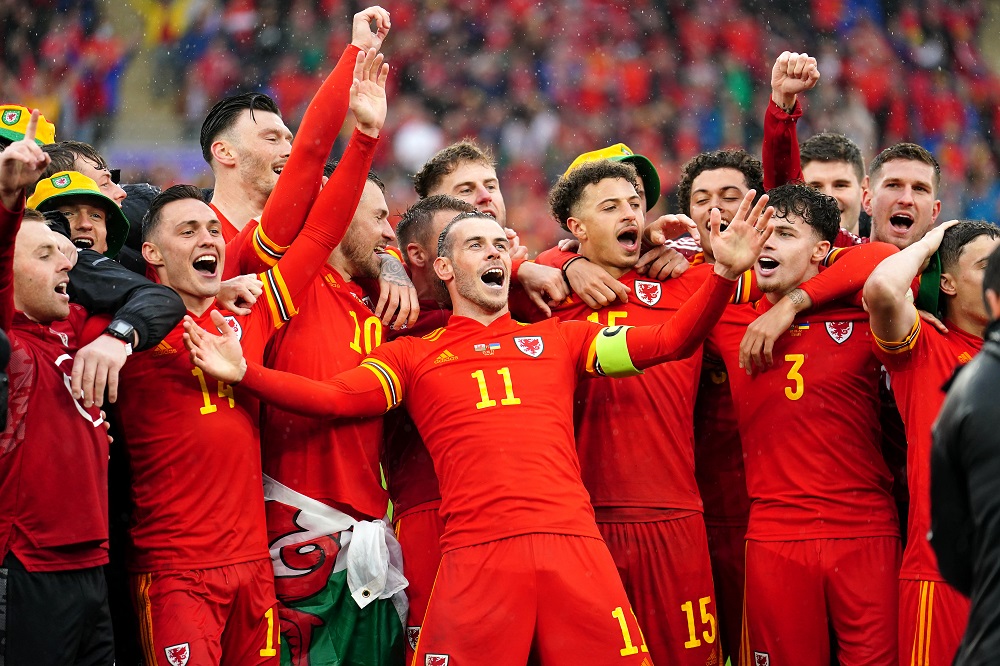
David Owens
After everything. The nerves, the anticipation, the sheer enormity of what was at stake. In the end, Wales’ World Cup Playoff Final came down to a solitary own goal.
A deflected Gareth Bale free kick helped into the back of his own net by Andriy Yarmolenko.
It was a huge slice of World Cup fortune where previously in the ignominious history of Welsh footballing failures to qualify for football’s biggest prize there had been none.
When the final whistle blew after 95 minutes of the sort of sheer agony only a masochist could have enjoyed, a noise unlike any heard previously at the Cardiff City Stadium reverberated around the stands.
It was the guttural roar of demons being exorcised, of hurt being laid to rest and painful memories expunged.
After those long, barren years, Wales had finally qualified for a World Cup.
For those young Welsh fans who have only experienced success in recent times, Wales beating Ukraine 1-0 was business as usual. Back to back appearances at European Championships had fuelled those lofty expectations.
For those of us a little longer in the tooth, who believed this moment would never arrive, it was redemption, catharsis and exultation all rolled into one joyful outpouring.
Want to see grown men cry? You were in luck.
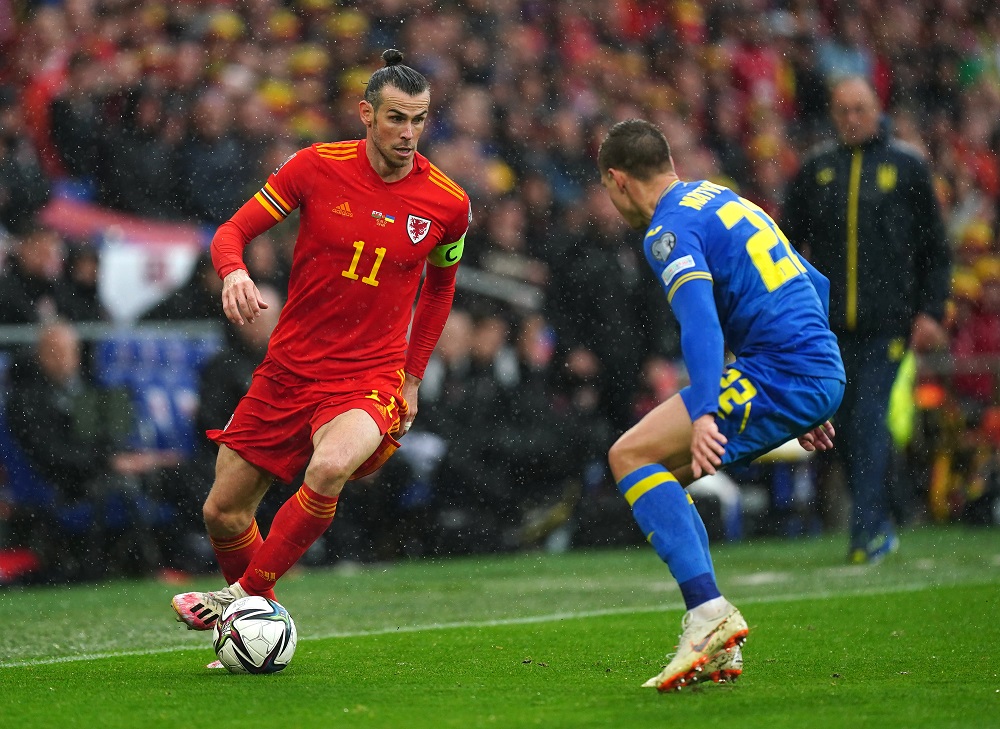
Wales hadn’t qualified for a World Cup since 1958; the international football equivalent of a smashed mirror, walking under a ladder, putting your shoes on the table, opening an umbrella indoors and not saluting a magpie all rolled into one wretched stretch of bad luck.
When our previous tilts at the World Cup were cruelly snatched away from us in 1977, 1985 and 1993, all three marred by moments of grand misfortune, I expected that twisted hand of fate to once again reach out and snatch it from us.
That it didn’t happen was down to a Welsh side that coursed with unyielding self-belief and the steely confidence that has been accrued over a decade of astonishing reinvention – both on and off the pitch.
Let us remember that when Qatar was chosen as the host for the World Cup back in December 2010, Wales were 112th in the FIFA rankings.
Breathtaking
It was a never-say-die performance from a team that never believes it is beaten. A Wales side prepared to dig deep. To show every ounce of grit, determination and desire to end a 64 year hoodoo.
Gareth Bale, Aaron Ramsey, Wayne Hennessey, and Joe Allen had all come too far to let their likely final opportunity at World Cup qualification be taken from them.
That Ukraine continued to show the same extraordinary spirit that saw them dismantle Scotland only days previously was remarkable. That we showed the same bravery as our outstanding opponents, well you could pay Rob Page’s men no greater compliment than that.
At times it was hard to rationalise what we were witnessing, such was the frenetic siege on the Welsh goal, but what was beyond doubt was that we were beholden to the greatest goalkeeping display we had ever seen.
Wayne Hennessey chose the absolute best moment to turn in his finest performance in 102 appearances for his country, making several breathtaking saves in denying Ukraine.
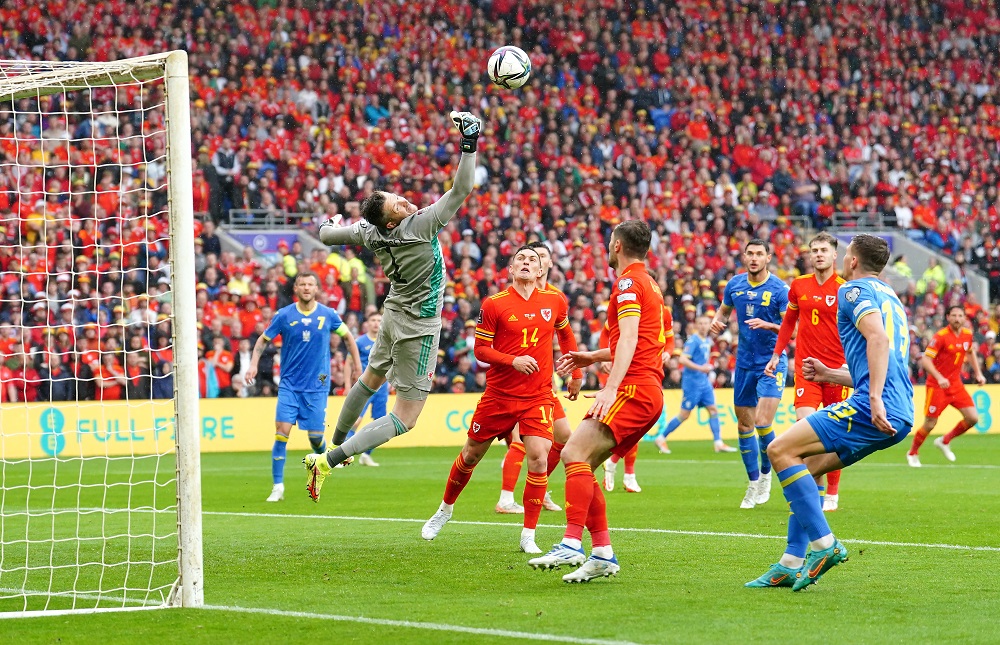
After the game Gareth Bale proclaimed Hennessey’s performance as the best he has ever seen from a goalkeeper – and lest we forget Bale was sat on the bench only a week ago as Real Madrid beat Liverpool in the Champions League Final thanks to Thibaut Courtois’ goalkeeping masterclass.
At times it did appear there was a higher force at play. To say the Welsh goal led a charmed life would be to undo the whole concept of leading a charmed life.
The Welsh defence was imperious, laying their bodies on the line, throwing themselves into last ditch tackles and blocks.
At its heart was Ben Davies – the very epitome of a Red wall; a Welsh Gandalf, whose ‘you shall not pass’ mantra was adopted by his defensive brethren – Joe Rodon, Ethan Ampadu, Neco Williams and Connor Roberts.
At the other end, there were chances, but when Bale and Ramsey missed relatively easy, for them at least, opportunities the fear only escalated as nerves were shredded.
However, Wales were not to be denied. The footballing gods had decided this was finally to be our time.
Every bit of luck we’d been denied in six decades of World Cup near misses was saved up and withdrawn with interest.
When the full-time whistle finally arrived, the enormity of what we had achieved hit home.
Myself and lifelong friends who had endured the lean times, looked at each other dumbfounded. There were no words. Only tears.
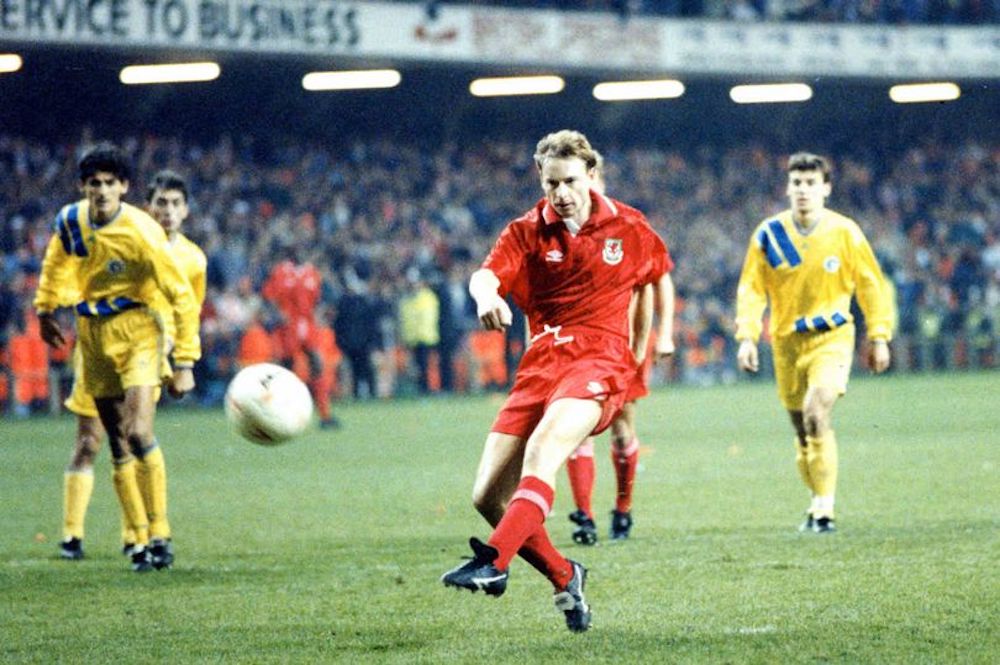
This was for anyone who had suffered. It was for the family of John Hill – the man who tragically lost his life at the Arms Park in 1993. It was for Gary Speed – who sowed the seeds but never saw this moment. It was laying to rest the ghosts of Joe Jordan’s handball and Paul Bodin’s penalty. It was everything – and more.
The on pitch celebrations were understandably frenzied, the release of emotion palpable.
As we cast our eyes over thousands of partying fans in trademark bucket hats we also pondered whether we were able to buy shares in Spirit of ‘58.
The scene was also emblematic of a new Wales. A rich, multicultural, inclusive, bilingual vision – and there at its heart was Dafydd Iwan, a singer whose late career resurgence has seen him reborn as the people’s poet, belting out a stirring rendition of ‘Yma O Hyd’.
But only in Wales can a folk anthem be followed by a dayglo rave banger in ‘Zombie Nation’. This is Wales – where cultural unorthodoxy reigns supreme.
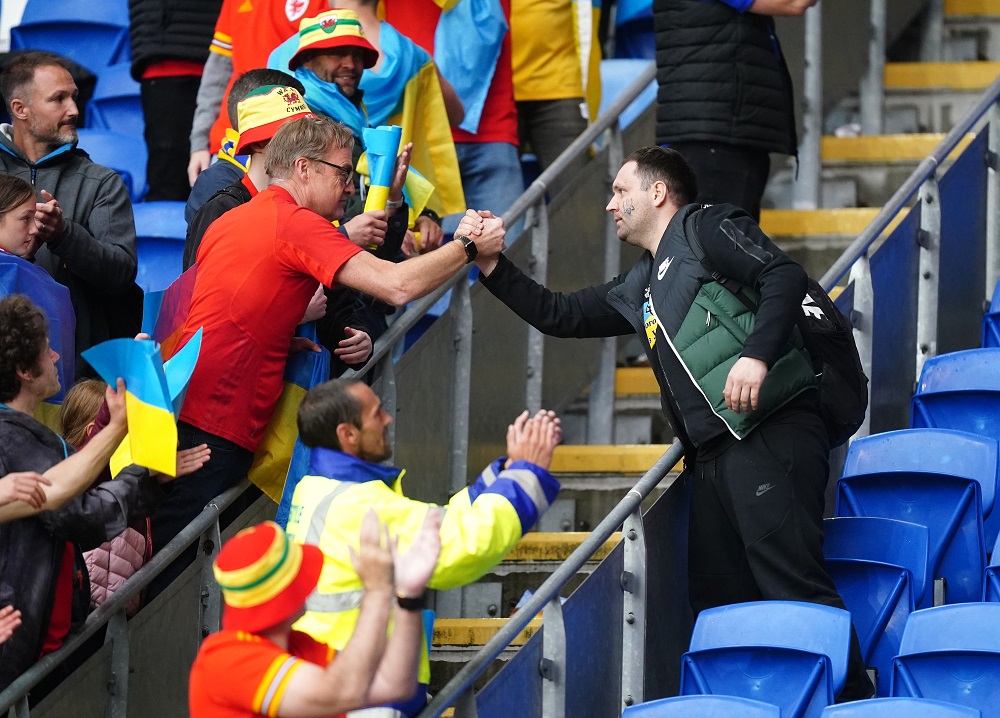
Walking out of the stadium there was celebration, but also reflection on a game of football that had meant so much to both sides.
All the talk ahead of the match had been that of Wales’ becoming the most hated team in world football if they had won, but there was nothing but mutual respect and admiration from both sides.
From the moment the Ukraine players were cheered when they came out to warm up, their national anthem applauded and Welsh players walking over to the away end at full-time to applaud the Ukrainian support, there was a bond of unbreakable camaraderie.
In the car park afterwards, Wales and Ukraine supporters applauded and embraced each other.
The Welsh fans’ desire to show solidarity for a country experiencing unimaginable heartache was beautifully heartfelt.
It was also a timely reminder that however much this victory meant to us, ultimately some things are more important.
We will carry Ukraine’s hopes for peace with us to Qatar.
We stand with you.
Slava Ukraini.
Support our Nation today
For the price of a cup of coffee a month you can help us create an independent, not-for-profit, national news service for the people of Wales, by the people of Wales.




